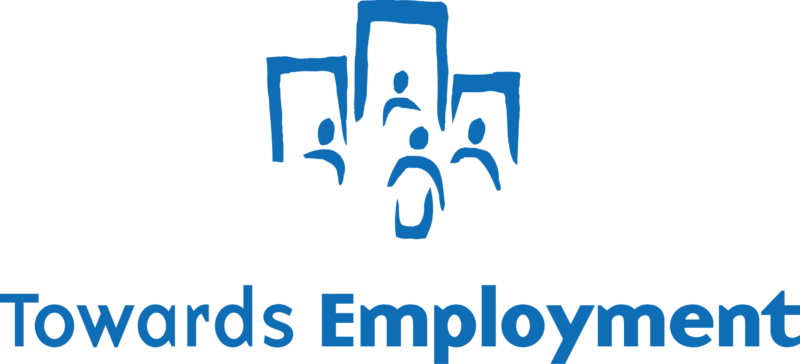Real-Time Takes: STARs – Success Stories Despite the Odds

Real-Time Takes
A Policy Blogcast
STARs - Success Stories Despite the Odds
Interview with Chrissy Adams and Joan Crosby
July 1, 2024
Interview by Brian Balogh & Gabrielle Fortin
Written by Gabrielle Fortin
Did you know that if you are at least 25, have a high-school diploma but not a four-year degree, and are currently active in the workforce, you are a STAR (Skilled Through Alternative Routes)?
Although over 50% of the workforce are STARs (more than 70 million people), the job market deliberately prioritizes and rewards those with degrees.1 Opportunity@Work, in partnership with the Ad Council, launched ‘Tear the Paper Ceiling’, a campaign dedicated to advancing opportunities for STARs. Their research finds that while 67% of job descriptions require a four-year degree, only 30% of positions truly need a degree.2 Despite the need for qualified workers, employers continue to prefer and demand candidates with four-year degrees over STARs with relevant experience and knowledge.
A lack of a degree does not entail a lack of skill. Rather than college degrees, STARs draw upon diverse experiences that add value to the workplace. Their skills come from various realms that range from military service and community college to training program certificates. Most commonly, their skills are attained and refined through on-the-job learning. Nevertheless, they are screened out of jobs by algorithms, are paid less than college graduates- despite equal performance- and are more likely to be passed over for promotions.1, 3 These factors severely handicap one’s upward mobility; unfortunately the odds do not favor STARs.
We sat down with TE employees Joan Crosby and Chrissy Adams as they shared their STAR success stories. Upon graduating from high school, Joan Crosby, Director of Community, Reentry and Young Adult Programs, knew she wanted to teach; but ended up joining the navy as a hospital corpsman.
After her time in the navy ended, Joan started working at a college. While the navy didn’t give her any official certification as a healthcare professional, she parlayed her experience and skills into a teaching position. 61% of veterans in the workforce are STARs- that’s over four million talented individuals with valuable skills that aren’t taught in college.4 Despite their impressive skillset, veteran STARs still face barriers to employment, and are often overlooked. With her foot in the door, Joan stayed at that college for fifteen years, holding many positions she learned on the job.
Joan started at TE through an internship opportunity in 2013, and never looked back.
"I am a living example of our mission"
Chrissy Adams, Program Administrator at Towards Employment, has had careers in healthcare, office work and now non-profit work. Without a four-year degree, Chrissy gained hands-on experience as a healthcare professional.
A brush with the criminal justice system added to the barriers she faced. Fortunately, her mom’s experience and connections in health care opened doors for Chrissy.
Despite her many credentials, from a State Tested Nurse Aide (STNA) license and a Medical Assistant certification to a Healthcare Information and Management Systems certification, Chrissy still faced many obstacles. She finished TE’s Community & Reentry workshop and tirelessly dedicated herself to finding a worthwhile career. She applied to countless positions, from administrator to executive assistant, finding only low-wage opportunities.
Chrissy’s ambition was irrepressible, and she was eventually recruited to join the TE team.
In a 2023 survey, 77% of employers reported having difficulty finding skilled job candidates.4 That’s because they were looking only at college graduates. The problem isn’t a lack of talent within the workforce; instead, employers fail to value the skills that alternative paths provide. If they did not blindly sort through and eliminate applications from STARs, many employers would find candidates with the skills they need. The opportunity gap does not come from a gap in a STAR’s expertise or knowledge but rather from an employer’s refusal to open traditionally closed doors.
Despite breaking through barriers and finding careers that match their passions and skills, both Chrissy and Joan eventually decided to pursue higher education. Chrissy, who is currently working towards a bachelor’s degree in business management, explains:
Pursuing higher education is a privilege that is not available to all, primarily because it costs time and money. For Joan, the opportunities perfectly aligned. In 2005 she received her bachelor’s degree for $150, with tuition benefits from the same college that employed her. She then seized the moment to complete her master’s degree in 2013, a dream she could not have realized when working full-time as a single mother.
So, what’s next for STARs? With fewer Americans deciding to pursue higher education, some employers are beginning to take a closer look at how they value alternative paths of skill acquisition.6 Companies in both the public and private sectors must change their policies to expand opportunities and improve mobility for STARs. As ‘Tear the Paper Ceiling’ recommends in their STARs Hiring Playbook, by adopting skills-based hiring and therefore requiring either education or experience, STARs will have access to more job opportunities.7 Furthermore, employers should create gateway jobs- positions above the median wage that are accessible to low-wage STARs. These gateway jobs allow for a smoother transition into more desirable positions and improve STARs’ mobility. Moreover, employers should clearly define a skills-based pathway to achieving a higher-wage position. Joan was able to go from intern to director because of TE’s career pathway model. This entails promoting from within and creating skill development opportunities such as job shadowing or training programs.
For Chrissy and Joan, skills and opportunities aligned, leading to success; despite the system being stacked against them. STARs should be able to participate in a workforce that works for, and not against them. Join us in tearing the ‘paper ceiling’, a barrier to a STAR’s advancement. Towards Employment encourages you to check out resources from Opportunity@Work and Tear the Paper Ceiling to learn more about the value of and challenges facing STARs.
Watch the Full Interview
Coming Soon
Footnotes
Other Resources

About the Authors
Brian Balogh is an award winning Professor of History Emeritus in the Corcoran Department of History at the University of Virginia, with multiple published titles. He founded and recently stepped down as director of the Jefferson Scholars Foundation National Fellowship Program which has funded 185 dissertation completion fellowships for scholars from some of the top Ph.D. programs in the world, studying American politics and public policy from an historical perspective. He was a cohost of the popular public radio show, then podcast, Backstory with the American History Guys. Balogh focuses on 20th Century U.S. Politics, Environmental History, the history of Science and Technology, and the history of Media and Politics.

Gabrielle Fortin (she/her) is Towards Employment’s Summer 2024 Cleveland Foundation Policy and Advocacy Intern. During her internship, she has been supporting TE’s 2022-2025 Policy Agenda with a focus on collateral sanctions. Some of her responsibilities include collaborating with community coalitions, tracking legislation (SB37, HB460, HB464) as well as researching and compiling data to advance TE policy initiatives. She has greatly enjoyed collecting and sharing individuals’ stories for advocacy purposes and is looking forward to continuing that work. Gabrielle attends Case Western Reserve University (c/o 2025) and majors in Political Science and International Studies, with minors in Public Policy, French, and Business Management.
Towards Employment
Policy & Advocacy
Towards Employment promotes economic mobility, focusing on those most impacted by systemic racism. We educate and advocate for a more equitable workforce system where racial income gaps have been eliminated and everyone has access to family sustaining wages and quality jobs.

